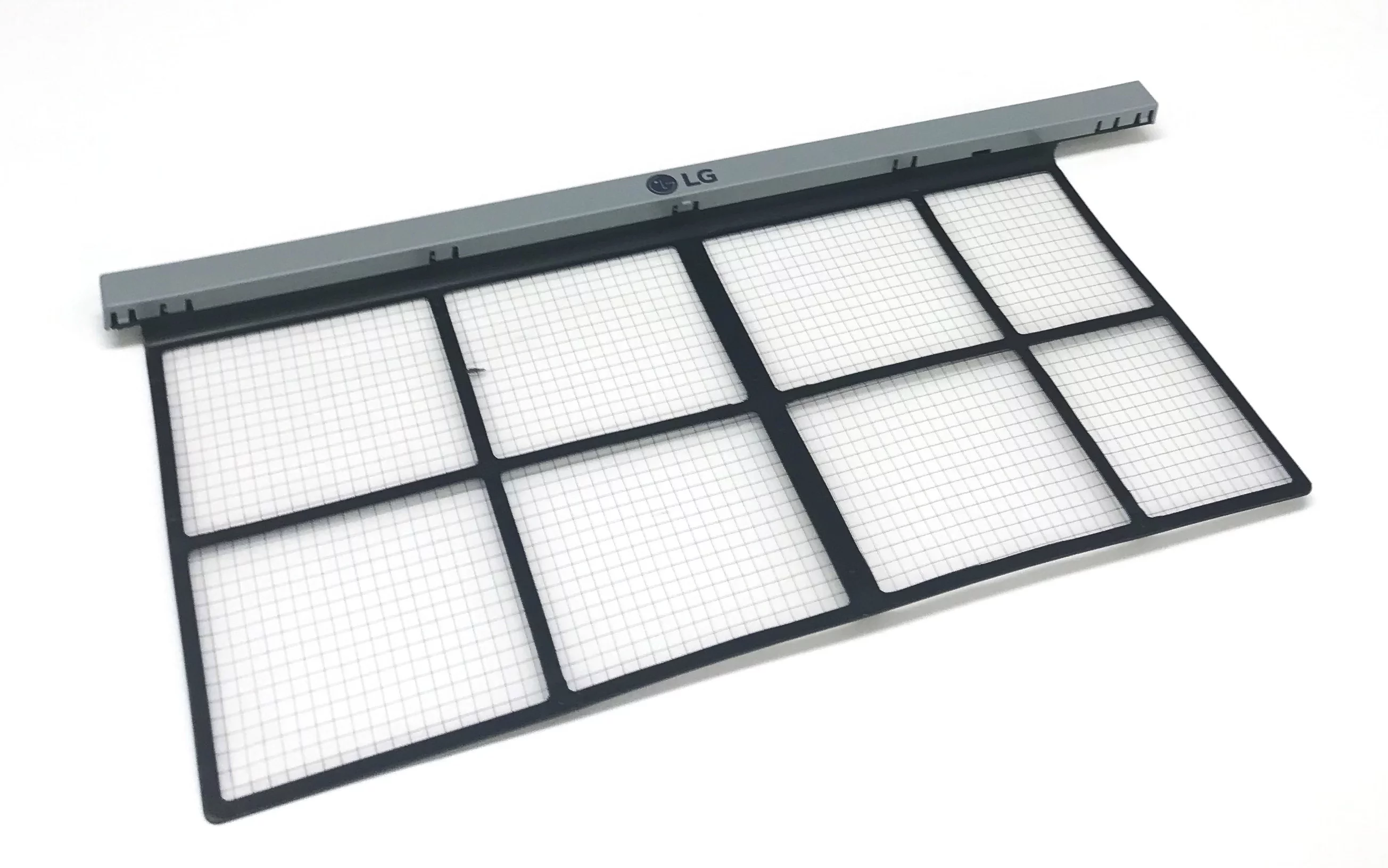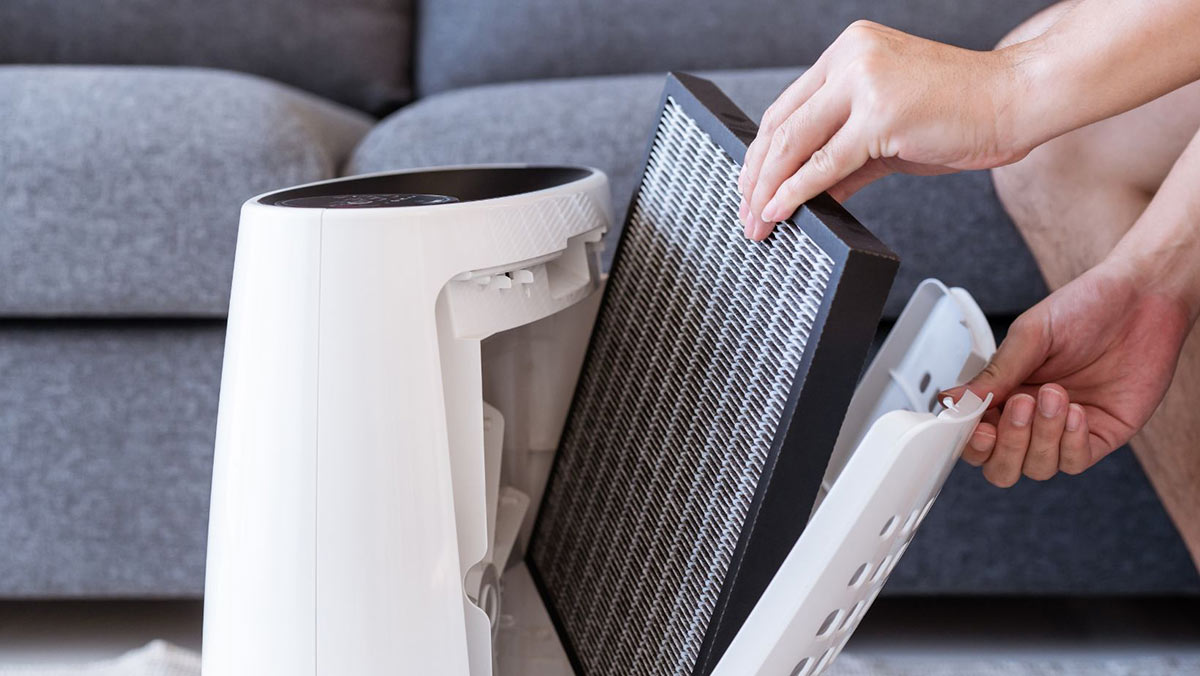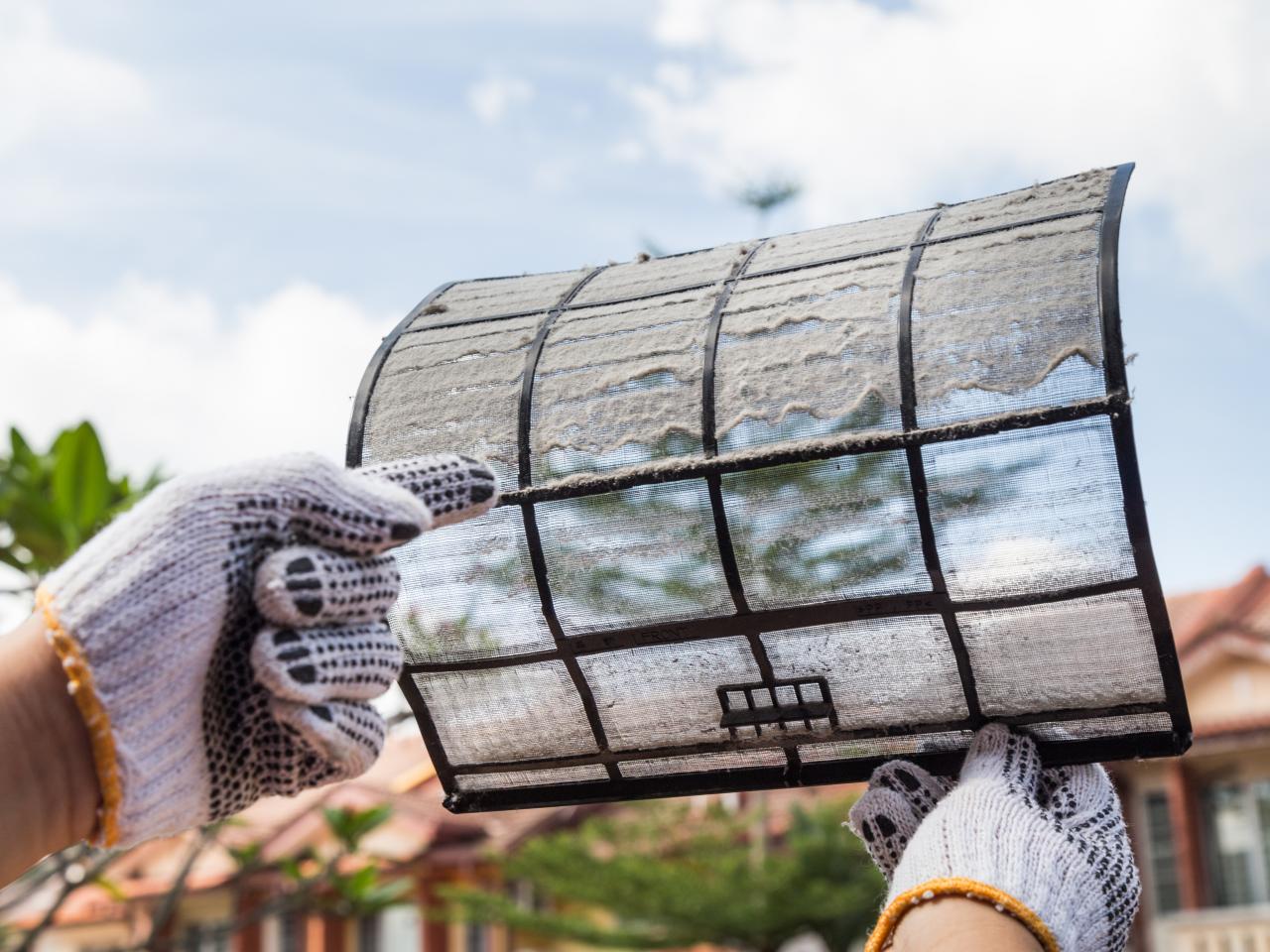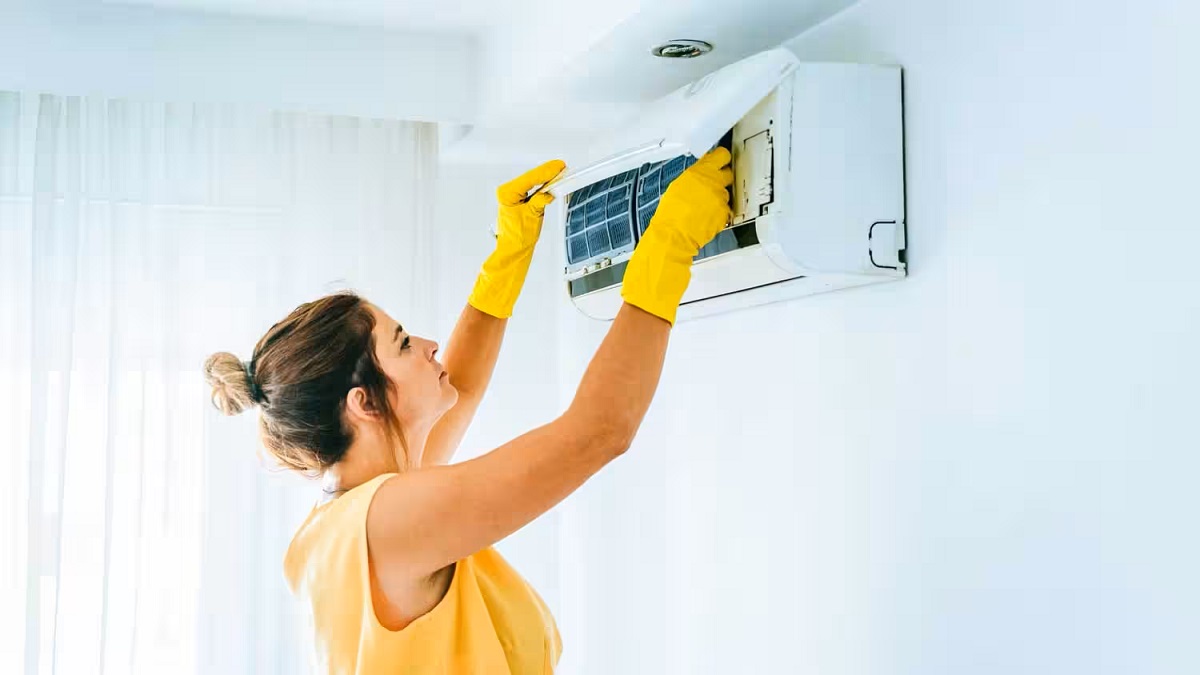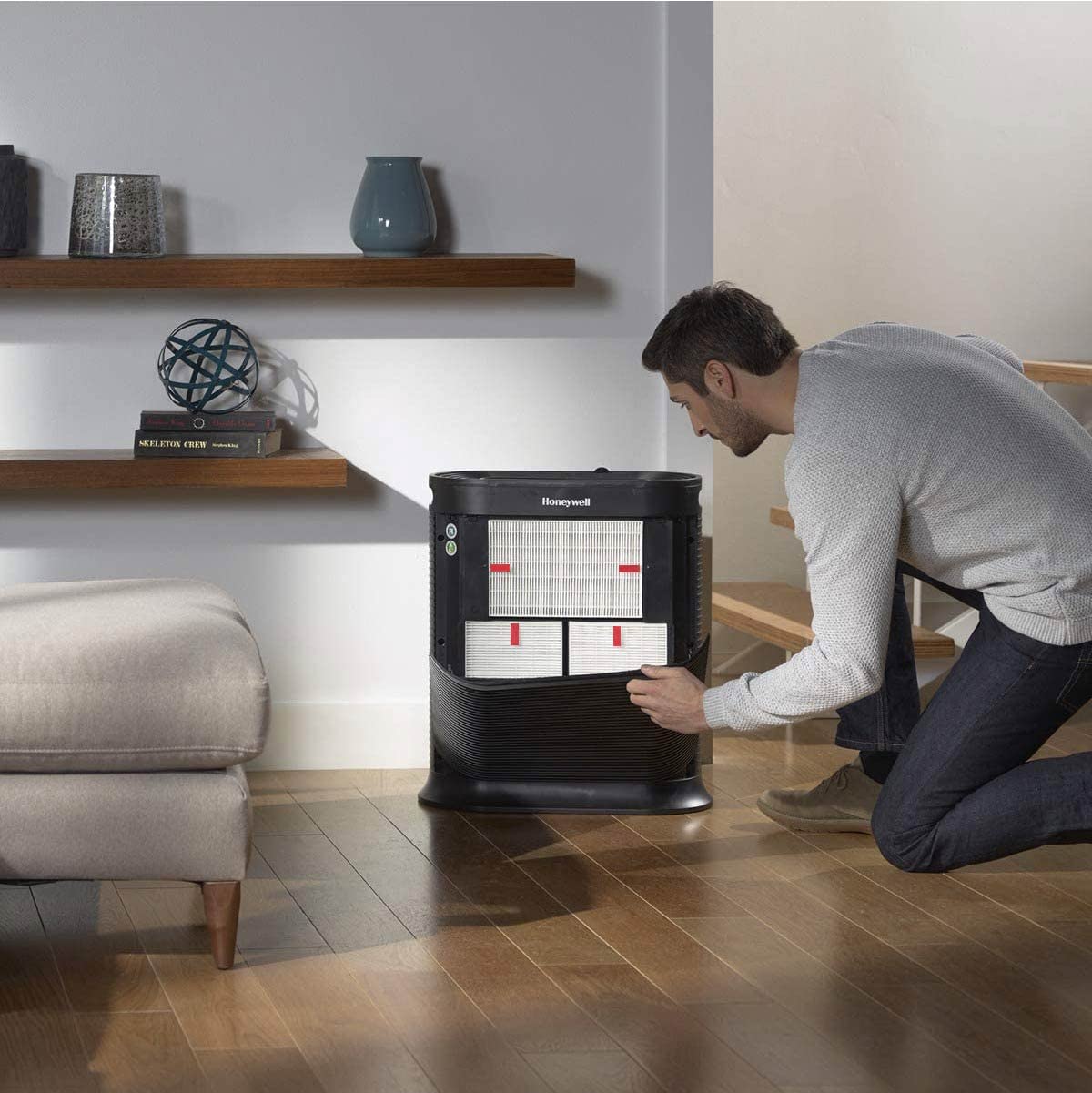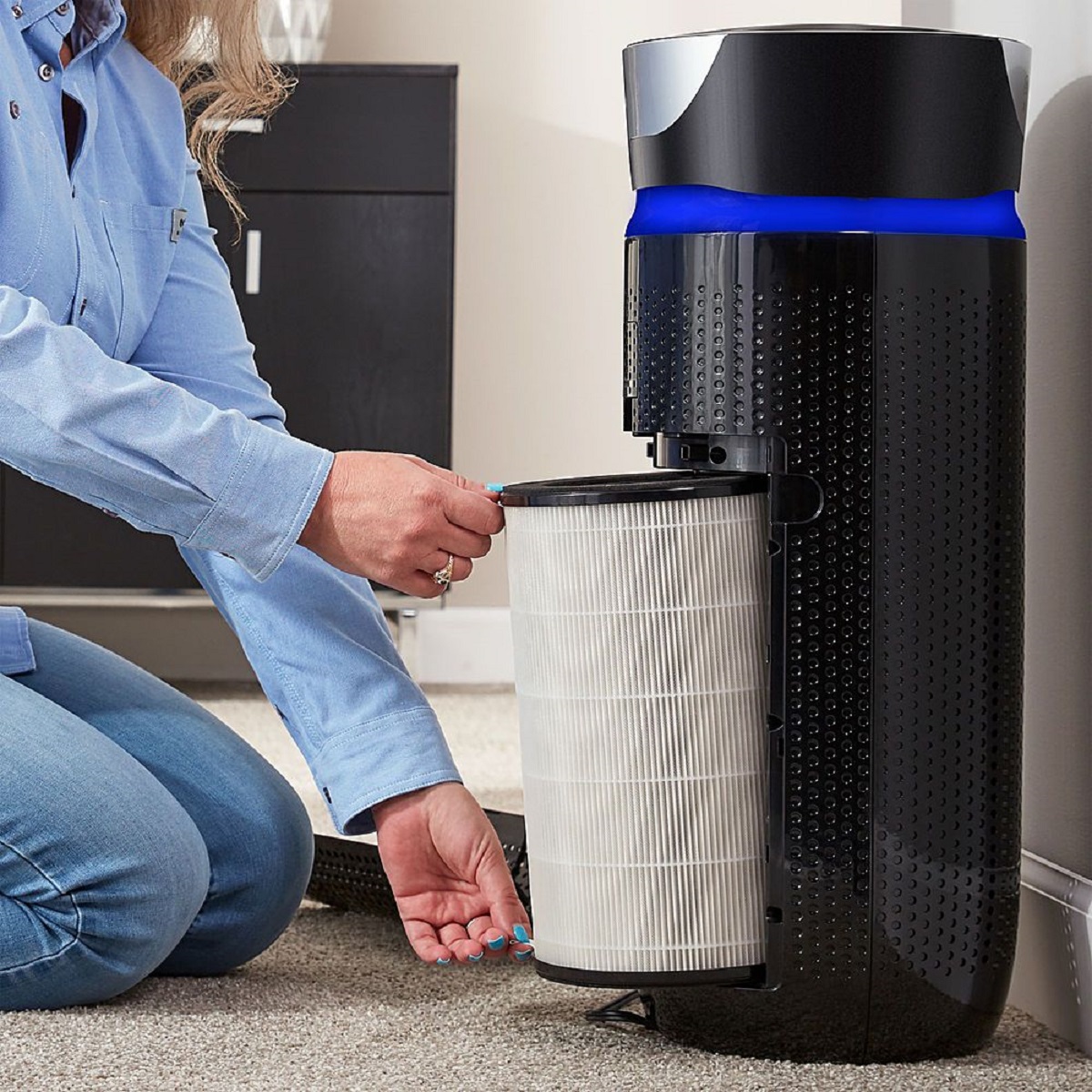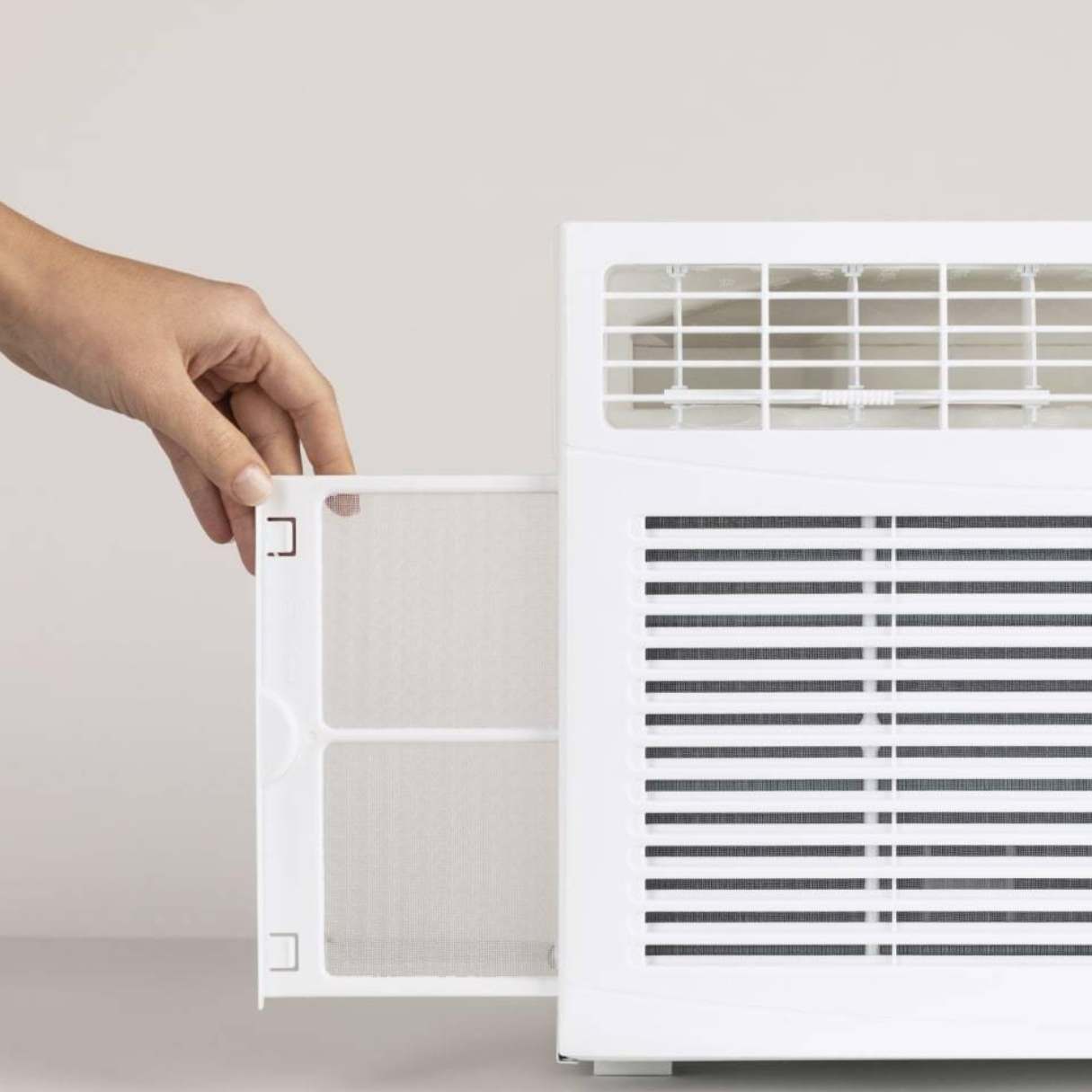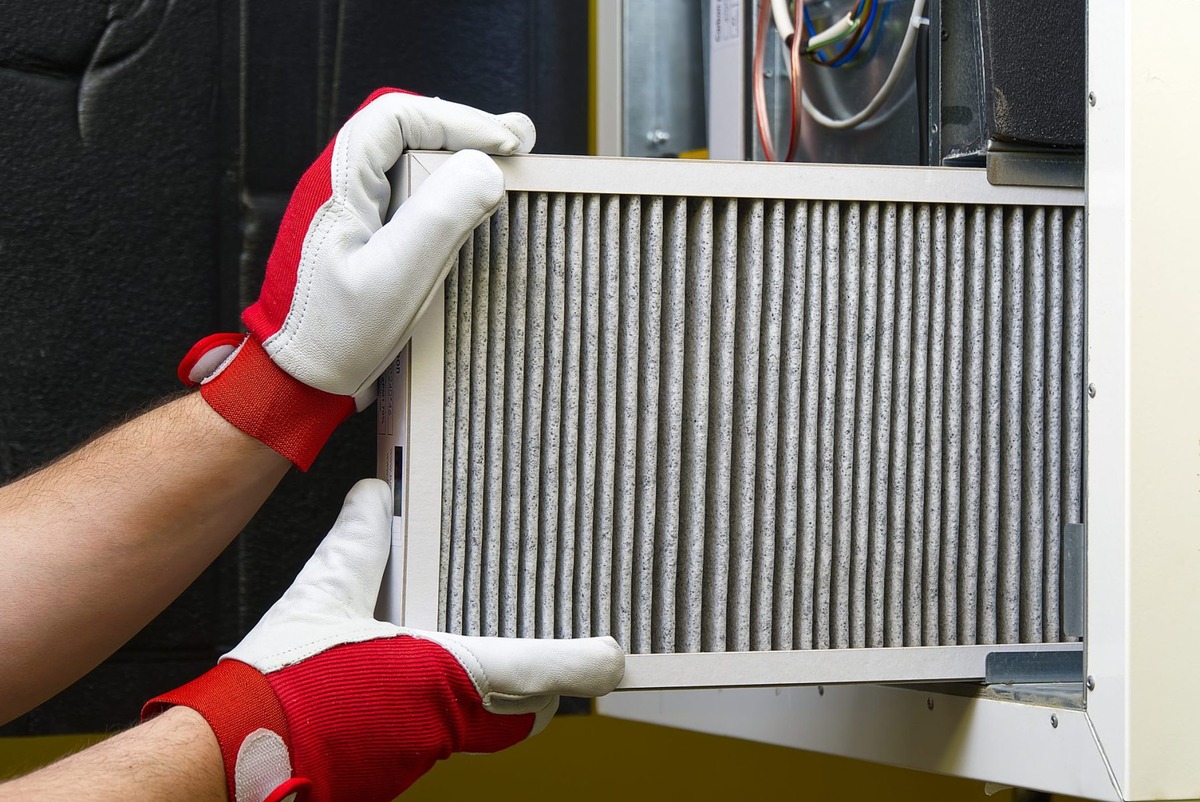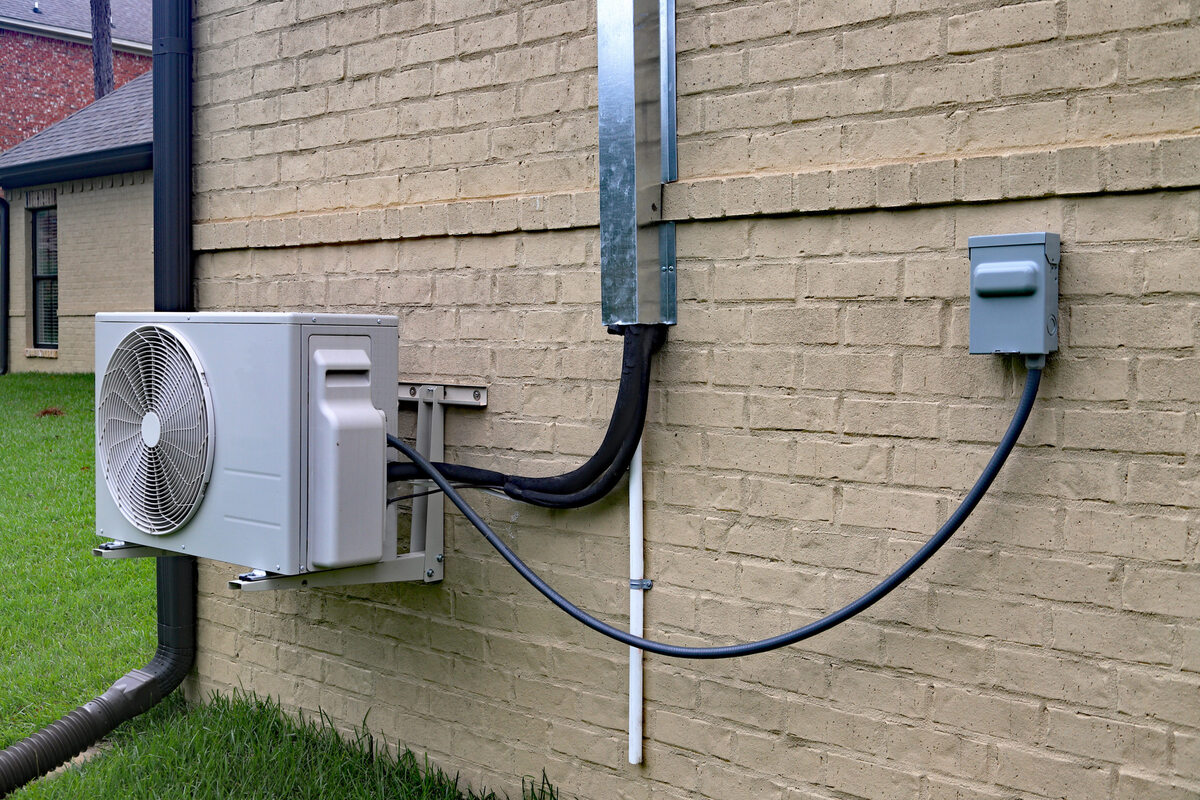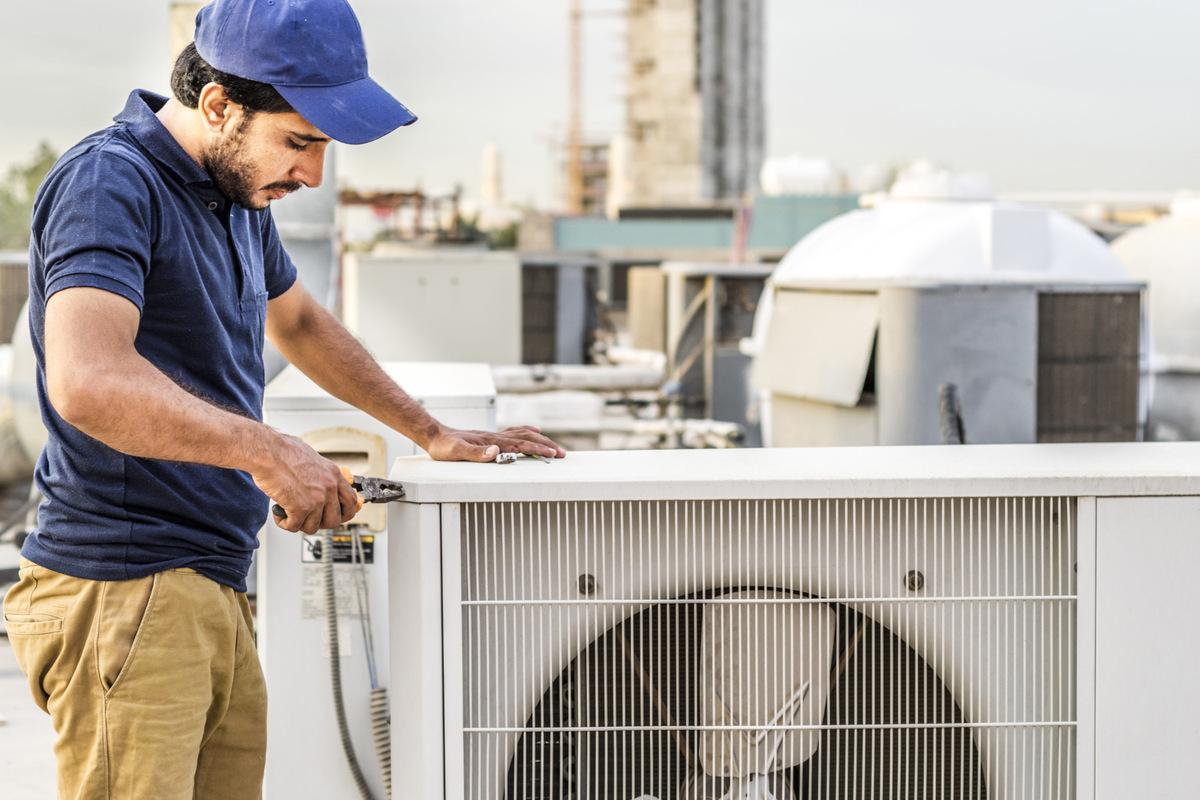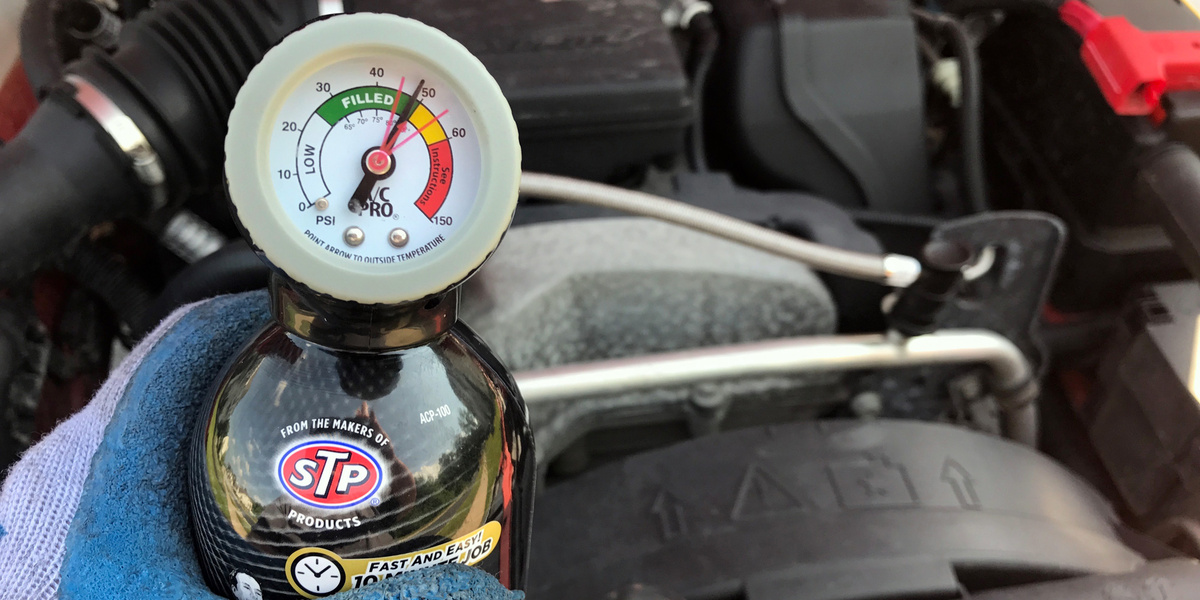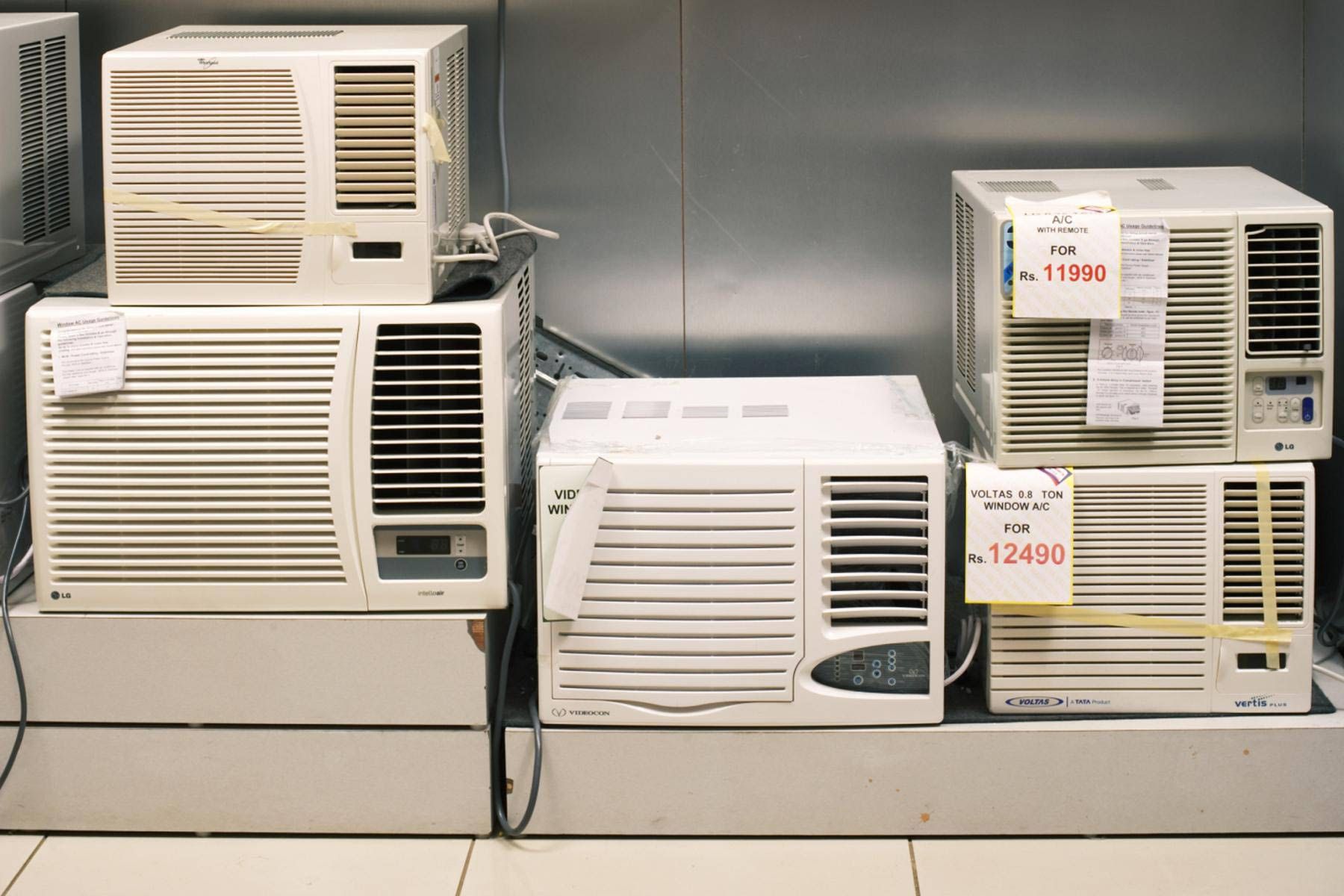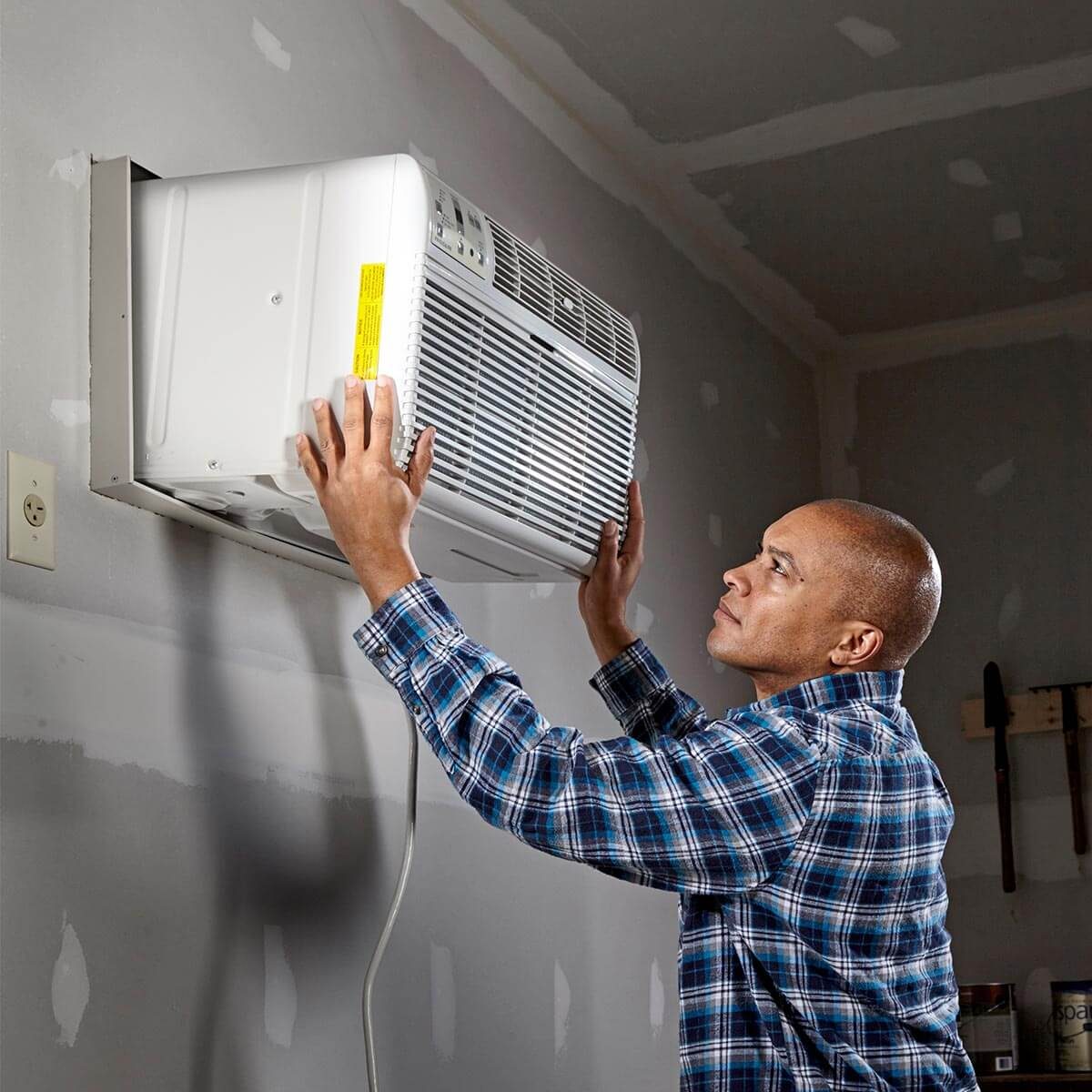Home>Home Maintenance>How To Clean Air Conditioning Filter
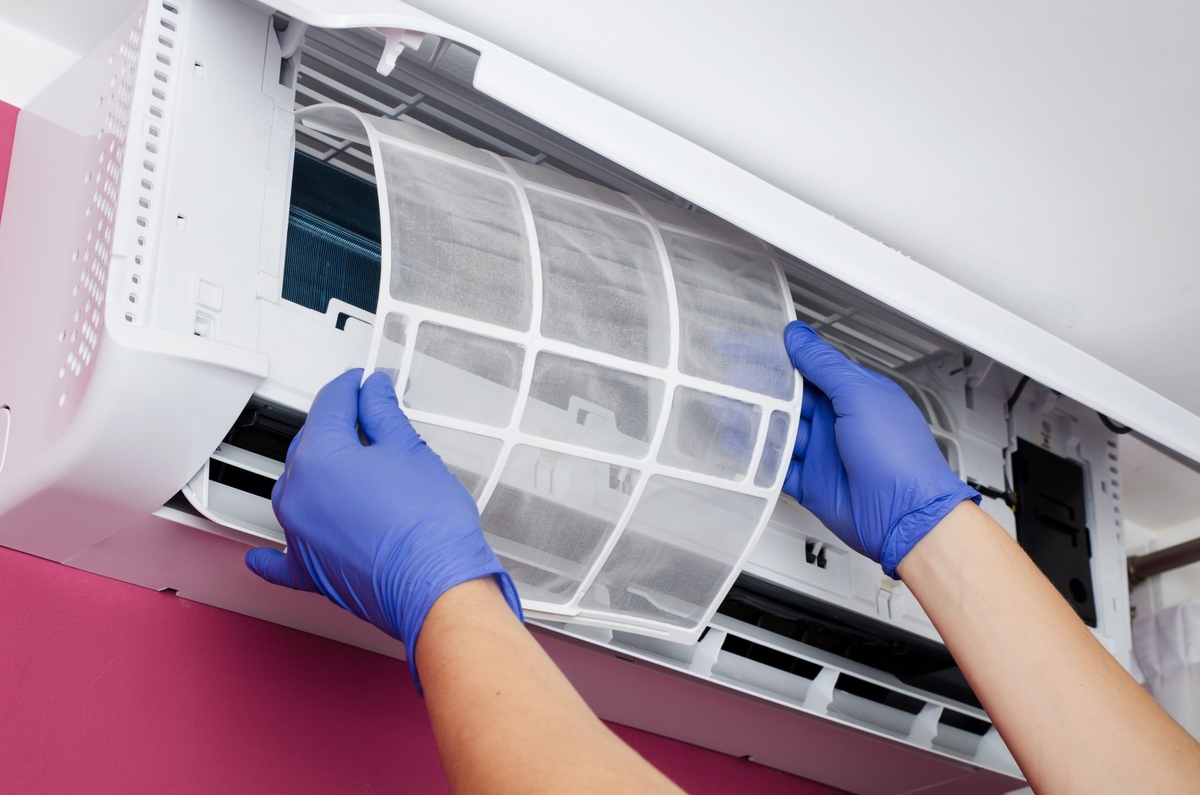

Home Maintenance
How To Clean Air Conditioning Filter
Modified: March 6, 2024
Learn how to clean your air conditioning filter with this comprehensive guide on home maintenance. Keep your AC running efficiently and improve the air quality in your home.
(Many of the links in this article redirect to a specific reviewed product. Your purchase of these products through affiliate links helps to generate commission for Storables.com, at no extra cost. Learn more)
Introduction
Welcome to the ultimate guide on how to clean your air conditioning filter. Keeping your air conditioning system running efficiently is crucial for maintaining a comfortable and healthy home environment. One of the key maintenance tasks that homeowners often overlook is cleaning the air conditioning filter. With regular use, the filter can become clogged with dirt, dust, and debris, reducing the system’s efficiency and indoor air quality. In this article, we will discuss why cleaning your air conditioning filter is important, the tools and materials you need, step-by-step instructions, precautions to take, how often you should clean the filter, signs indicating it needs cleaning, and the benefits of regular maintenance.
Key Takeaways:
- Regularly cleaning your air conditioning filter is essential for saving energy, reducing maintenance costs, and ensuring a healthier home environment.
- By cleaning your air conditioning filter every 1 to 3 months, you can improve cooling performance, extend equipment lifespan, and lower energy bills.
Why Cleaning Your Air Conditioning Filter is Important
Cleaning your air conditioning filter is essential for several reasons. Firstly, a clean filter ensures that air can flow freely through the system. When the filter becomes clogged with dirt and debris, it restricts airflow and puts strain on the entire HVAC system. This can lead to reduced cooling performance and increased energy consumption, resulting in higher utility bills.
Another critical reason for cleaning the air conditioning filter is to maintain good indoor air quality. The filter serves as a barrier, capturing particles such as dust, pollen, pet dander, and mold spores that are present in the air. Over time, these particles accumulate on the filter, hindering its effectiveness. If the filter is not cleaned regularly, these particles can be recirculated into your home, causing respiratory issues, allergies, and other health problems.
Cleaning the air conditioning filter also helps to prolong the lifespan of your HVAC system. When the filter is clogged, the system has to work harder to push air through, leading to increased wear and tear on the components. By regularly cleaning the filter, you can reduce the strain on the system and extend its longevity, saving you money on repairs or premature replacement.
In addition to the practical benefits, cleaning the air conditioning filter also contributes to environmental sustainability. An efficient HVAC system consumes less energy, resulting in a reduced carbon footprint. By maintaining a clean filter, you are not only saving money but also doing your part to protect the environment.
Overall, cleaning your air conditioning filter is essential for optimal system performance, improved indoor air quality, energy efficiency, and cost savings. It is a simple yet effective maintenance task that should not be overlooked.
Tools and Materials Needed
Before you begin cleaning your air conditioning filter, gather the following tools and materials:
- Gloves: Wear gloves to protect your hands from the dirt, dust, and debris on the filter.
- Dust Mask: It’s a good idea to wear a dust mask to avoid inhaling any particles when handling the dirty filter.
- Vacuum Cleaner: A vacuum cleaner with a brush attachment will help remove loose debris from the filter before cleaning it.
- Water Source: You will need access to water, either from a sink, hose, or bucket, to rinse the filter.
- Mild Detergent or Cleaning Solution: Prepare a solution of mild detergent or an air conditioning filter cleaning solution. Avoid using harsh chemicals that can damage the filter.
- Soft Brush or Cloth: Use a soft brush or cloth to gently scrub the filter and remove any stubborn dirt or grime.
- Drying Rack or Clean Towels: After cleaning, you will need a drying rack or clean towels to air dry the filter before reinstalling it.
Having these tools and materials prepared in advance will make the cleaning process more efficient and ensure that you have everything you need to properly clean your air conditioning filter.
Steps to Clean Your Air Conditioning Filter
Now that you have gathered all the necessary tools and materials, follow these steps to effectively clean your air conditioning filter:
- Turn off the Air Conditioner: Before removing the filter, turn off the air conditioning system to prevent any damage or injury.
- Locate the Air Conditioning Filter: The filter is typically located near the air handler unit or in the return air vent. Refer to your owner’s manual for specific instructions on locating the filter.
- Remove the Filter: Carefully remove the filter from the unit. Be gentle to avoid tearing or damaging the filter.
- Vacuum Loose Debris: Use a vacuum cleaner with a brush attachment to gently remove any loose dirt, dust, and debris from the filter. Be thorough but gentle to avoid damaging the filter media.
- Rinse the Filter: Rinse the filter with water to remove any remaining dirt and grime. Use a gentle stream of water to avoid causing damage to the filter. If the filter is heavily soiled, you may need to soak it in a solution of mild detergent or an air conditioning filter cleaning solution and gently scrub it with a soft brush or cloth.
- Air Dry the Filter: Allow the filter to air dry completely. You can place it on a drying rack or use clean towels to absorb excess water. Make sure the filter is completely dry before reinstalling it.
- Reinstall the Filter: Carefully place the cleaned and dried filter back into the air conditioning unit. Ensure that it is properly seated and securely in place.
- Turn On the Air Conditioner: Once the filter is reinstalled, turn on the air conditioner and enjoy the improved airflow and better air quality!
By following these steps on a regular basis, approximately every 1 to 3 months depending on usage and air quality, you can ensure that your air conditioning filter remains clean and effective in maintaining a comfortable and healthy indoor environment.
Precautions to Take While Cleaning the Filter
While cleaning your air conditioning filter is a relatively simple task, it’s important to take certain precautions to ensure your safety and the proper maintenance of your HVAC system:
- Turn off the power: Before removing the filter or performing any cleaning, make sure to turn off the power to the air conditioning system. This will prevent any risk of electric shock or damage to the equipment.
- Wear protective gear: It’s advisable to wear gloves and a dust mask when handling the filter to protect your hands and respiratory system from dust, dirt, and potentially harmful particles.
- Follow manufacturer’s instructions: Refer to the owner’s manual or manufacturer’s instructions for specific guidelines on cleaning the filter. Different types of filters may require different cleaning methods or may have specific maintenance recommendations.
- Handle the filter with care: Be gentle when removing and reinstalling the filter to avoid tearing or damaging it. A damaged filter will not be as effective in capturing airborne particles and may lead to reduced efficiency and air quality.
- Avoid using harsh chemicals: Stick to mild detergent or specially formulated air conditioning filter cleaning solutions when cleaning the filter. Harsh chemicals can damage the filter material and compromise its effectiveness.
- Allow the filter to dry completely: Ensure that the filter is completely dry before reinstalling it. Moisture trapped in the filter can promote the growth of mold or mildew, leading to further air quality issues and potential damage to the HVAC system.
- Regularly check and replace filters if necessary: While cleaning the filter is important, there may come a time when it is no longer effective and needs to be replaced. Check the filter regularly for signs of wear, damage, or excessive buildup and replace it as needed.
By following these precautions, you can safely and effectively clean your air conditioning filter, maintaining a healthy and efficient HVAC system.
Regularly clean or replace your air conditioning filter to maintain good air quality and efficiency. Use a vacuum or wash with mild soap and water, then let it dry completely before reinstalling.
Read more: How To Clean My Car Air Conditioning
How Often Should You Clean Your Air Conditioning Filter
The frequency with which you should clean your air conditioning filter depends on several factors, including the type of filter, the air quality in your area, and the usage of your HVAC system. As a general guideline, it is recommended to clean or replace your air conditioning filter every 1 to 3 months. However, there are some additional considerations to keep in mind:
- High allergies or pets: If you or your family members suffer from allergies or if you have pets that shed frequently, you may need to clean or replace the filter more frequently. This helps to ensure that airborne allergens and pet dander are effectively filtered out, maintaining good indoor air quality.
- Poor air quality: If you live in an area with high levels of air pollution, dust, or other contaminants, you may need to clean or replace the filter more often. Regular cleaning helps to prevent the filter from becoming clogged and ensures optimal performance of your HVAC system.
- Heavy usage: If you use your air conditioning system frequently, particularly during peak seasons, it is advisable to clean the filter more often. Increased usage leads to a higher accumulation of debris on the filter, affecting airflow and reducing efficiency.
- Type of filter: Different types of filters have varying lifespans and cleaning requirements. Disposable fiberglass filters typically need to be replaced every 1 to 2 months, while washable or reusable filters can be cleaned and reused for several months. Refer to the manufacturer’s instructions for specific recommendations.
It’s important to note that these are general guidelines, and you should always consider the specific conditions of your home environment and HVAC system. Regularly check the condition of the filter and inspect it visually for any signs of excessive dirt or damage. If you notice that the filter is significantly dirty or clogged, clean or replace it accordingly, regardless of the recommended timeframe.
By cleaning your air conditioning filter regularly and adapting the frequency based on your specific circumstances, you can ensure that your HVAC system operates efficiently, improves indoor air quality, and prolongs the lifespan of the equipment.
Signs That Indicate Your Air Conditioning Filter Needs Cleaning
Regularly cleaning your air conditioning filter is essential for maintaining the efficiency and performance of your HVAC system. But how do you know when it’s time to clean the filter? Look out for these signs that indicate your air conditioning filter needs cleaning:
- Reduced airflow: If you notice a decrease in the airflow from your air conditioning vents, it could be a sign that the filter is clogged. A dirty filter restricts the flow of air, leading to reduced cooling capacity and less effective distribution throughout your home.
- Inefficient cooling: If your air conditioner is running longer than usual or struggling to reach the desired temperature, it may be due to a dirty filter. A clogged filter forces the system to work harder to cool the air, resulting in increased energy consumption and reduced efficiency.
- Visible dirt and dust: Take a close look at your air conditioning filter. If you can see a layer of dirt, dust, or debris on the surface, it’s a clear indication that it needs cleaning. Over time, these contaminants accumulate and prevent proper airflow through the system.
- Increased energy bills: A dirty filter can cause your HVAC system to work harder, leading to higher energy consumption and subsequently higher utility bills. If you notice a sudden spike in your energy costs without any other explanation, it’s worth checking and cleaning the air conditioning filter.
- Unpleasant odors: A musty or stale smell coming from your air conditioning vents can be a sign of a dirty filter. When the filter becomes clogged, it can trap moisture, leading to the growth of mold or mildew. This can result in unpleasant odors circulating throughout your home.
- Allergy or respiratory issues: If you or your family members are experiencing allergy symptoms or respiratory issues such as sneezing, coughing, or itchy eyes, a dirty filter may be to blame. A clean filter helps remove allergens and pollutants from the air, while a dirty filter allows them to recirculate.
Keep an eye out for these signs and check your air conditioning filter regularly. If you notice any of these indicators, it’s time to clean the filter. By doing so, you can restore proper airflow, improve cooling efficiency, reduce energy consumption, and maintain better indoor air quality.
Benefits of Regularly Cleaning Your Air Conditioning Filter
Regularly cleaning your air conditioning filter offers several advantages that contribute to the efficient operation and longevity of your HVAC system, as well as improved indoor air quality. Here are some key benefits of keeping your air conditioning filter clean:
- Improved Energy Efficiency: A clean air conditioning filter allows for optimal airflow throughout the system, reducing strain on the blower and other components. This improved airflow translates into better energy efficiency, as the system can cool the air more effectively without working harder than necessary. As a result, you can expect lower energy bills and reduced environmental impact.
- Extended Equipment Lifespan: When your air conditioning filter is dirty, it can lead to excessive strain on the HVAC system. The blower motor and other components have to work harder to push air through the clogged filter, which can cause them to wear out more quickly. By regularly cleaning the filter, you can reduce the workload on your HVAC system and increase its lifespan, saving you money on costly repairs or premature replacements.
- Better Indoor Air Quality: The air conditioning filter plays a vital role in trapping dust, pollen, pet dander, mold spores, and other airborne particles. Over time, the filter becomes clogged with these contaminants, compromising its effectiveness. By cleaning the filter regularly, you remove these particles and maintain better indoor air quality. This is particularly important for individuals with allergies or respiratory conditions, as a clean filter helps reduce the presence of allergens and irritants in the air.
- Enhanced Cooling Performance: A clean air conditioning filter allows for better airflow, ensuring that cooled air is distributed evenly throughout your home. When the filter is dirty, airflow is restricted, and certain areas may not receive sufficient cooling. By cleaning the filter, you can improve the system’s cooling performance, providing consistent comfort in every room.
- Reduced Maintenance Costs: Regularly cleaning your air conditioning filter can help prevent costly repairs. A clogged filter can lead to overheating and other issues that may require professional intervention. By maintaining a clean filter, you minimize the risk of damage to the system, saving you money on unnecessary repairs and maintenance.
By understanding the benefits of regular air conditioning filter cleaning, you can ensure that your HVAC system operates efficiently, promotes good indoor air quality, and lasts longer without unnecessary issues or expenses. Make it a habit to clean your air conditioning filter according to the recommended schedule, and enjoy the many advantages it brings to your home comfort and budget.
Conclusion
Maintaining a clean air conditioning filter is crucial for the efficient and optimal performance of your HVAC system. By regularly cleaning your air conditioning filter, you can enjoy a range of benefits, including improved energy efficiency, extended equipment lifespan, better indoor air quality, enhanced cooling performance, and reduced maintenance costs.
Cleaning your air conditioning filter is a relatively simple task that can be done with the right tools and materials. Remember to take proper precautions, such as turning off the power and wearing protective gear, while handling the filter. Follow the recommended guidelines for cleaning frequency, but also consider factors such as allergies, pets, air quality, and system usage.
Regularly checking and cleaning your air conditioning filter will help to ensure smooth operation, lower energy bills, and a healthier home environment. Additionally, it will help you to avoid costly repairs and premature replacement of your HVAC system.
Remember that a clean filter not only benefits your air conditioning system but also contributes to environmental sustainability by reducing energy consumption and your carbon footprint.
So, don’t neglect the maintenance of your air conditioning filter. Set reminders, establish a cleaning routine, and make it a priority to keep your filter clean. Your HVAC system and your overall comfort will thank you for it.
Now that you have a comprehensive understanding of why cleaning your air conditioning filter is important, the tools and materials needed, the steps to clean it, precautions to take, and how often to clean it, you are well-equipped to maintain the efficiency and longevity of your HVAC system. Start incorporating regular filter cleaning into your home maintenance routine and enjoy the benefits of cleaner air and cost savings in the long run.
Frequently Asked Questions about How To Clean Air Conditioning Filter
Was this page helpful?
At Storables.com, we guarantee accurate and reliable information. Our content, validated by Expert Board Contributors, is crafted following stringent Editorial Policies. We're committed to providing you with well-researched, expert-backed insights for all your informational needs.
